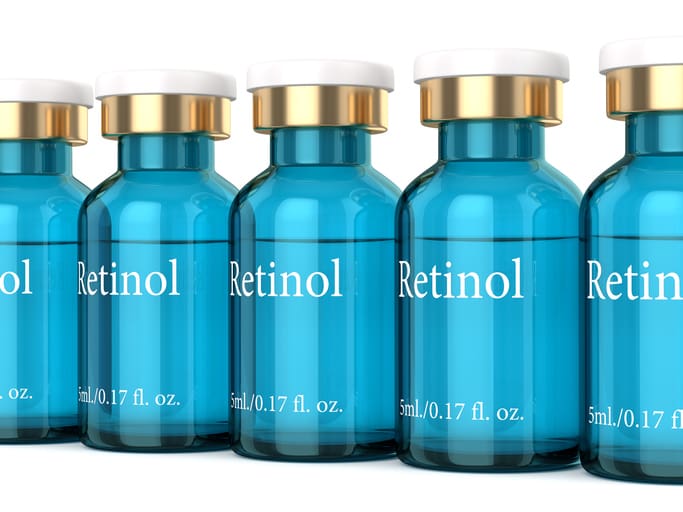Retinol, retinoids and our view
Retinol is vitamin A and was first discovered in 1913 by Elmer McCollum and Marguerite Davis, who found a fat-soluble substance in butterfat and cod liver oil that prevented and reversed night blindness. Its chemical structure was determined by Paul Karrer in 1931. It was 1946 when retinol was first synthesised chemically by David Adriaan van Dorp and Josef Ferdinand Arens, whose research prompted Otto Isler to produce it commercially in 1947. Retinoids are chemical derivatives of vitamin A (retinol) and are now popularly advertised to create the youthful appearance individuals want.

What do retinoids do in the skin?
Retinol increases cell proliferation, leading to the production of new cells. Cell proliferation means the increase in tissue/cell number. This leads to the skin looking fresher as new cells are made at a faster rate than they would naturally.
Could retinol cause premature ageing?
In the 1960s, an anatomist, Leonard Hayflick, a pioneer in cell biology, proposed that cell proliferation could occur only a finite number of times. Cell proliferation means the increase in tissue/cell number. Retinol increases cell proliferation, leading to the production of new cells. Retinoids bind to receptors on cells (like a lock and a key) to initiate cell growth by division and multiplication. The concern is that, if the cell renewal process is manipulated in this way, over time and with use, the skin will be unable to renew itself, and those using it may appear more aged in the future. If this theory is true, retinoids provide short-term benefits that may lead to the individual feeling disheartened over time.
Our view
We do not use retinoids in the clinic, nor retail, due to our natural approach. However, we are here to advise and help you make a more informed decision about the products that you purchase. So, if buying retinoids, always patch-test on your neck for at least a week, then a little on the area you want to use (irritation has been commonly observed in our clients with sensitive skin, though many do use them). And if you do not observe a benefit, discontinue – as ethically that is a waste of your resources and the planet’s. Many aesthetic treatments require aftercare, which prevents the use of retinoids due to their skin-sensitising risks and adverse side effects.
Bakuchiol has been termed the natural alternative to retinol. In 2014, Chaudhuri and Bojanowski published a study showing that Bakuchiol contains a compound clinically proven to have anti-ageing effects similar to retinol, due to similar gene expression changes, including wrinkle smoothing. Bakuchiol is a natural derivative, and in 2019, Dhaliwal et al. specified that it causes less irritation than retinol. The compound in Bakuchiol is not biologically identical to retinol. The same action happens with niacinamide, vitamin C, and resveratrol, though they are not as marketed at present.
Our natural skincare and less-is-more regime is what we endorse, and since 2006, we have helped many clients achieve the youthful appearance they desire.


